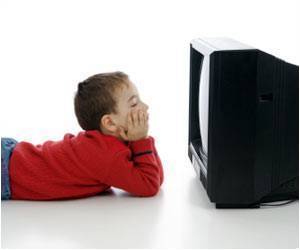Children spending more time on handheld devices can impair and delay their speech and in the long run can also increase the risk of diseases like diabetes.
- Rampant screen time on handheld devices have led to a new cause of concern among infants as their use has now been associated with speech delay
- Every 30 minutes increase in screen time is shown to increase speech delay by 49%
- 20% of the infants in the study were found to enjoy a screen time of at least 28 minutes everyday
Children are exposed to devices, both at school, as well as at home. Schools have begun instructing children to use hand held devices to complete their tasks, especially among younger children who haven’t learnt how to write.
The negative aspect is that such indiscriminate use of technology can lead to transient changes in the mood as well as long term changes in the brain. This is similar to the effects of consuming a high sugar soda, whose short term effects include sudden bursts of energy that could lead to hyperactivity in a child, and which, in the long run, also increases the risk for chronic diseases like diabetes.
Mozart Effect:
The Mozart effect is a transient elevation in the mood; it is the effect of any experience like listening to music or playing video games that have the ability to manipulate mood. Earlier studies have shown that excessive use of technology can lead to aggressive behavior among children.
In the current study, 894 children aged between 6 months and 2 years, who participated in the TARGet Kids, which is a practice-based research network in Toronto, were studied between 2011 and 2015.
- 20% of the children used handheld device everyday on an average for 28 minutes, according to parents
- Increase in time with handheld devices increased risk of speech delays, based on language delay screening tools
- Every 30 minute increase in handheld screen time led to 49% increase in speech delay,
- Other developmental delays associated with longer handheld screen time were delays in social interactions, gestures and body language communication
Recommendation by the American Academy of Pediatrics
The scientists associated with the study stated that further research was needed to determine
- mechanism of association between handheld screen time and delay in speech
- time spent together with parents when using the devices
- impact on long term communication
There is access to movies and games for children, much more than it was ever there before
- 90% of children below the age of 2 watch some form of electronic media
- Children who are below the age of 2 watch at least 1 to 2 hours per day
- One third of children in the U.S have a television in their bedroom by the time they are 3 years
- 39% of parents with young children state that the television at home is on for a minimum of 6 hours.
The current study shows that the visual display experience by toddlers while watching handheld devices could delay their ability to begin speaking, a developmental delay that can be prevented by restricting access to such gadgets.
References:
- Infants and Toddlers "Unplugged": New Recommendations about Media Use from the American Academy of Pediatrics - (http://www.hanen.org/Helpful-Info/Articles/Unplugged--New-recommendations-about-Media-Use-fro.aspx)
- Children, wired – for better and for worse - (https://www.ncbi.nlm.nih.gov/pmc/articles/PMC3170902/)










